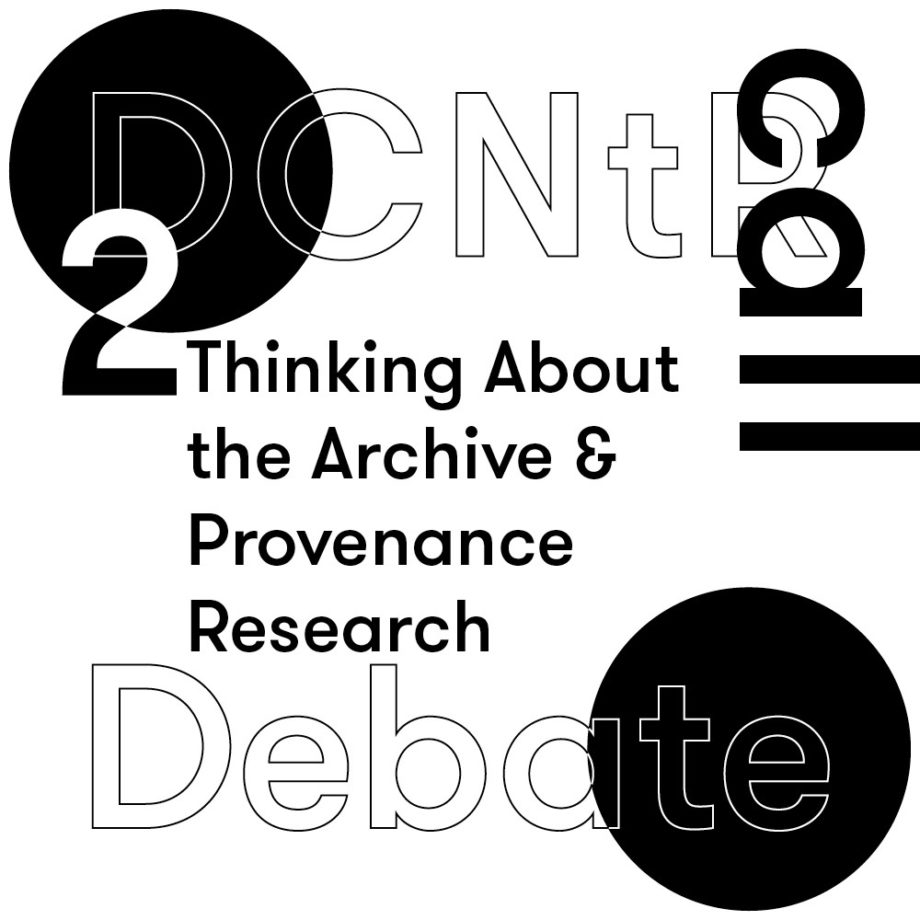DCNtR Debate #2
Thinking About the Archive & Provenance Research

In the debate about the colonial past of ethnological museums in Western Europe, provenance research has emerged in recent years as the main method for researching colonial legacies and addressing museums’ need for decolonisation. What has been lacking, however, is a debate about the theoretical implications of this approach – what kinds of knowledge can provenance research actually create?
So far, museums and researchers have investigated the acquisition context of colonial era collections systematically or on spec to create a sound basis for dealing with these collections in the future. This process has led to a shift in the understanding of the collections themselves, which are increasingly understood as archives. Simultaneously, archival records such as documents, photographs, and sound or film recordings, previously overshadowed by the ethnographic objects, move to the centre. In this moment of archival attention, however, the question of an unproblematic access to the archive, already posed by Gayatri Spivak, Jacques Derrida, Ann Laura Stoler and recently raised again by Ariella Azoulay also gains new relevance. Faced with a process of archival rediscovery, we ask contributors to come together for a debate centred around but not limited to the following questions:
What is the relationship between an ethnographic collection and its archival documentation, and in how far is such a distinction adequate for provenance research?
To what extent can the archive itself – a site of domination – serve as an instrument for postcolonial, i.e. domination-critical provenance research?
What is the role of provenance research in the decolonisation processes of formerly colonial institutions such as museums?
What hopes and desires are associated with archival work here and can these be fulfilled?
Can the ethnographic archive be read along or against the grain?
What might an archival theory of provenance research look like? And, vice versa, what would be a practice of provenance research that stretches or transcends the boundaries of the archive?
This debate invites an interdisciplinary reflection on the future of the ethnological archive. We particularly encourage young scholars to submit their position papers and participate in this discussion.
We invite abstracts of no more than 200 words to be submitted to carl.deussen@stadt-koeln.de no later than 18 February 2022.
Accepted contributors will be asked to submit a 1000 word position paper by 20 March 2022, which will be published on the DCNtR Blog (https://boasblogs.org/de/dcntr/) and serves as the basis for an internal workshop to be held on 8 April 2022.
The results of the workshop may be published as part of the blog’s open access Papers series (https://boasblogs.org/de/whatsinaname/boasblogs-papers-1/).
Conveners
Yagmur Karakis (University of Duesseldorf/Rautenstrauch-Joest-Museum)
Carl Deußen (University of Amsterdam/Rautenstrauch-Joest-Museum)































